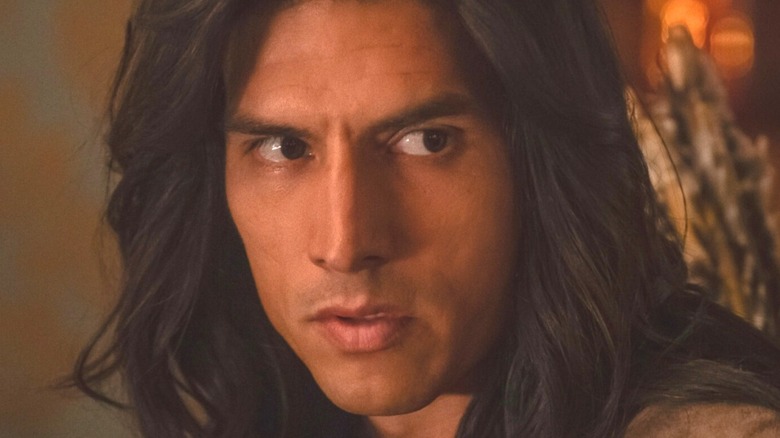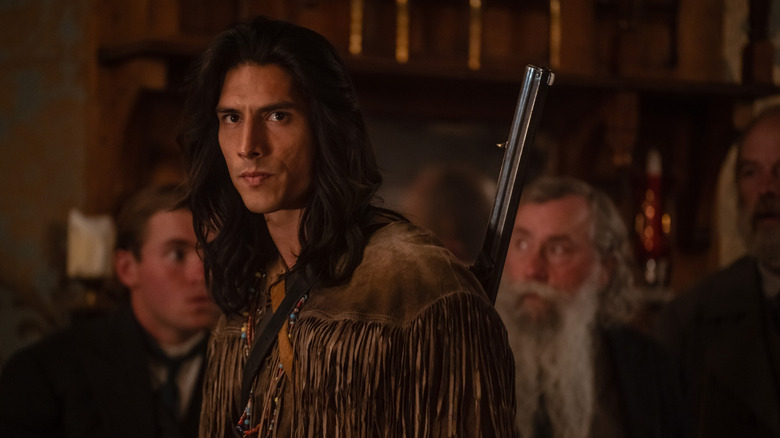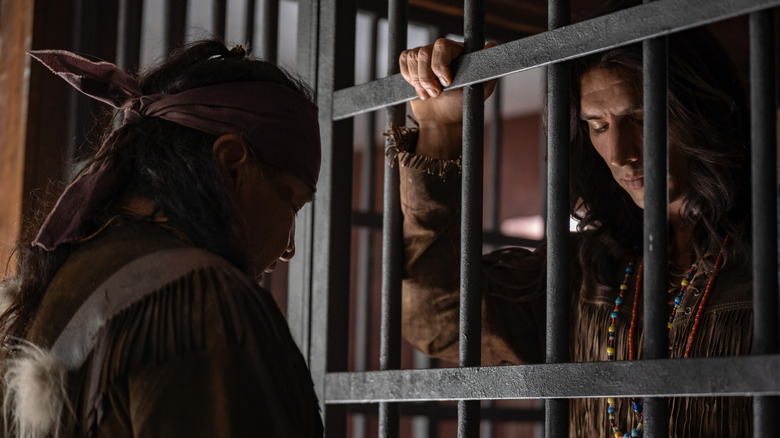Walker Independence's Justin Johnson Cortez Discusses How Fans Can Be Native Allies - Exclusive
Justin Johnson Cortez is changing the Western narrative on The CW's "Walker Independence." For too long, Native American representation has been nonexistent, peripheral, or highly problematic in Westerns that tackle the 1800s. It's no secret that history books are written by the conquerors, leading to a gross misrepresentation of what really happened during the "founding" of the U.S. Yet instead of painting the show's Apache tribes as the villains, "Walker Independence" tackles the horrors of the settlers stealing Apache land, using their services when it suits them, and blaming them for any crime that happens in town.
The hard-hitting episode "The Owl and the Arrow" details the hypocrisy of the time period as Cortez's character, Calian, fights to clear his name for a crime he didn't commit — while highlighting the barbaric nature of hanging people for entertainment. But representation isn't the only necessary component needed for reparations for Native American populations. We still have a long way to go in getting justice and equal rights for Native individuals in the United States.
Looper spoke to Cortez during an exclusive interview, where he discussed how "Walker Independence" is changing the Western narrative and how fans can be better allies to Native people.
The impact of Native representation
When we asked Justin Johnson Cortez how TV shows like "Walker Independence" help spread awareness about the historical realities of Native populations, he said, "[It's] the fact that they're trying their best to be realistic and true. It may seem like a little story, even just a little part of this one season of the show, but it's trying to be as true as you can in every little moment that you get."
One story in particular that Cortez pitched himself revolves around his character's sister, Nascha, who went missing. Originally, she was meant to be a vision, but Cortez wanted to shed light on how many Native kids have gone missing with no recourse throughout history and even today. He added, "The fact that Nascha was taken as a kid — that's a powerful thing that people might think of as, 'That's a TV thing.' But that was real. Hopefully, people will connect those dots and see, 'Oh, this actually happened. Cultures were getting erased.'"
How to be a Native ally
Justin Johnson Cortez also discussed how fans can help support Native people and endeavors in real life, encouraging fans to look into organizations for tribal foundations. He noted, "In terms of how to help and be allies, it's difficult. There [are] definitely organizations out there that are raising funds for different tribal foundations and stuff like that that you could donate to."
He's hopeful that representation will continue in Hollywood. "In the industry, hopefully, we get more Native voices that are behind the camera writing and directing and getting to tell these stories. When you get these kids growing up, and they're able to see themselves represented on the screen, that goes a long way," Cortez said. "I hope that networks and different productions give these storytellers a voice and that they get the necessary resources that do it well, so people will watch. They'll be able to be on the screen, and kids will be able to see themselves and believe that they could be something one day and that, 'Hey, that's me up there, I could do that. They remind me of me.' That goes a long way."
New episodes of "Walker Independence" air Thursdays on The CW and stream for free online and on The CW app the next day.


